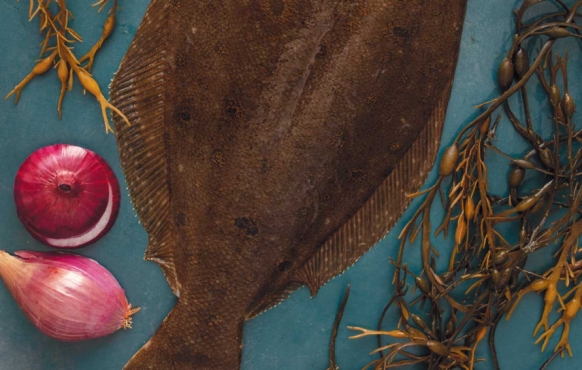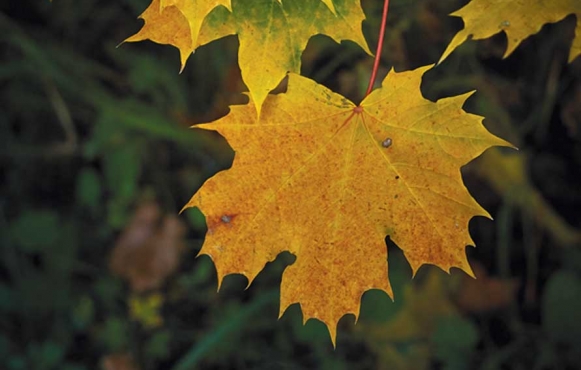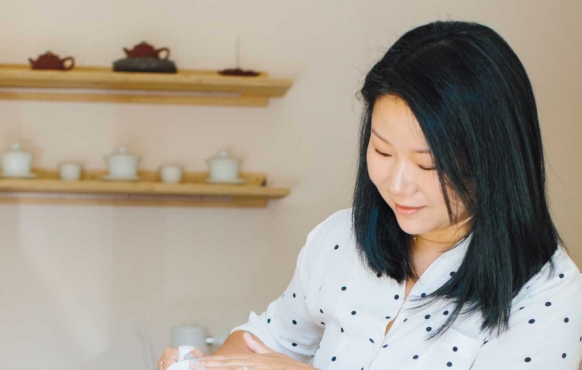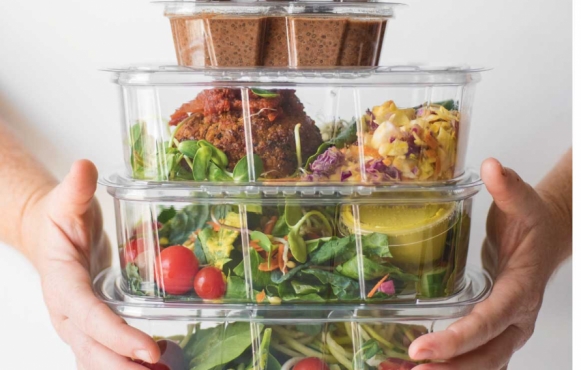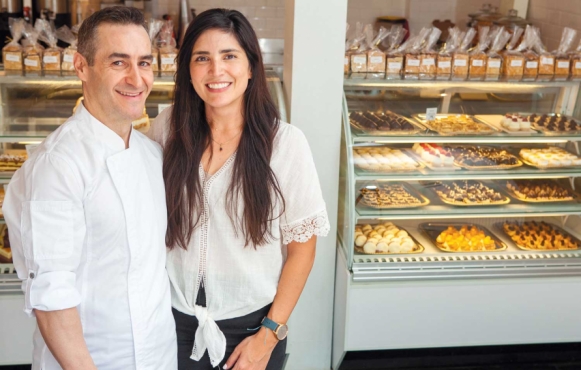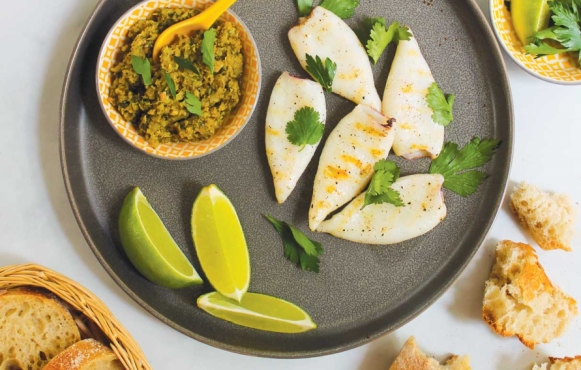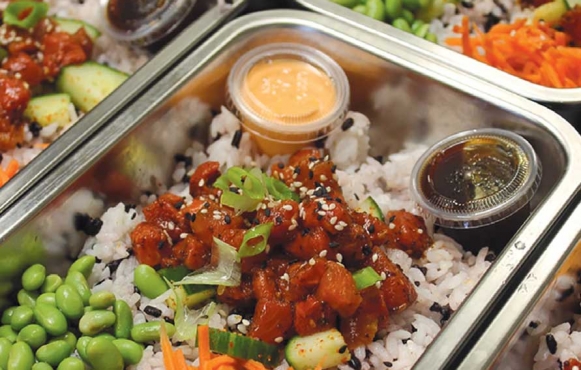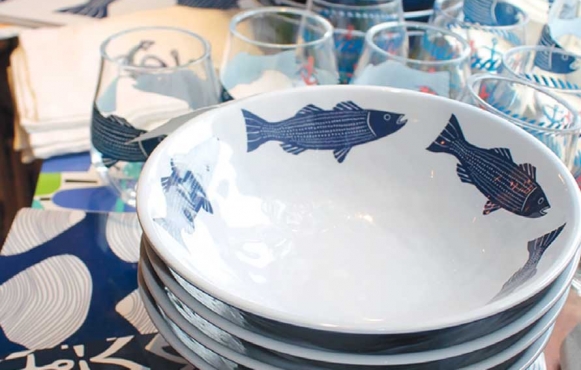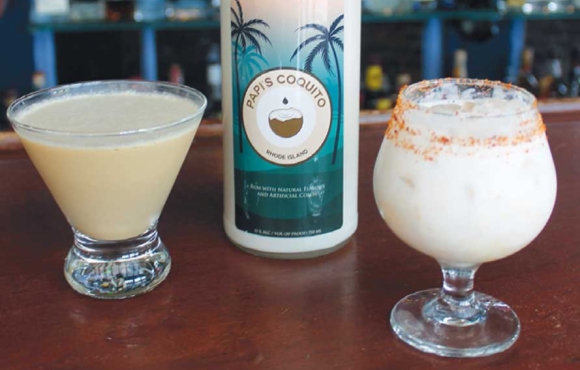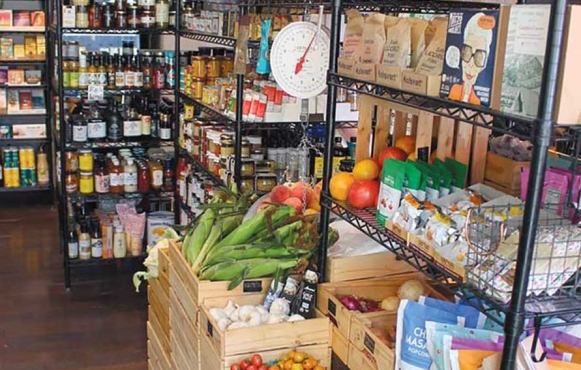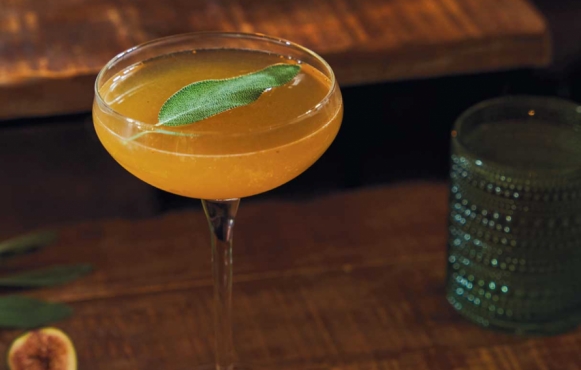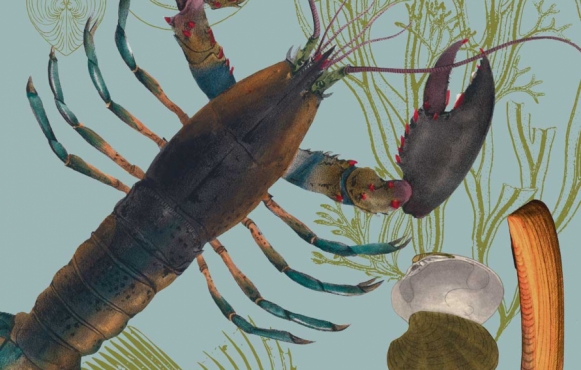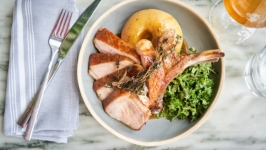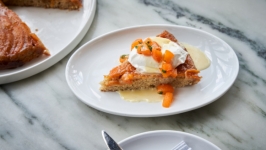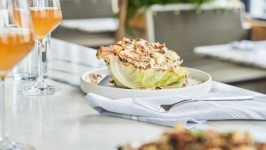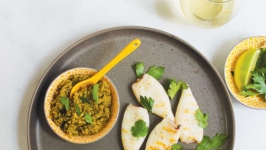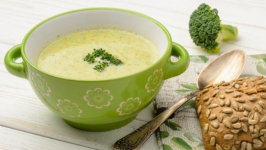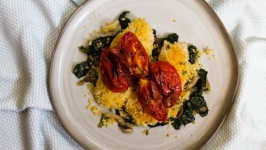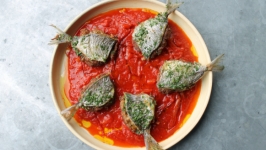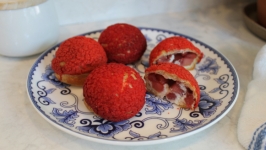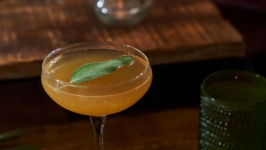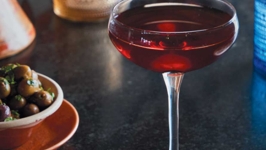In Our Fall 2022 Issue
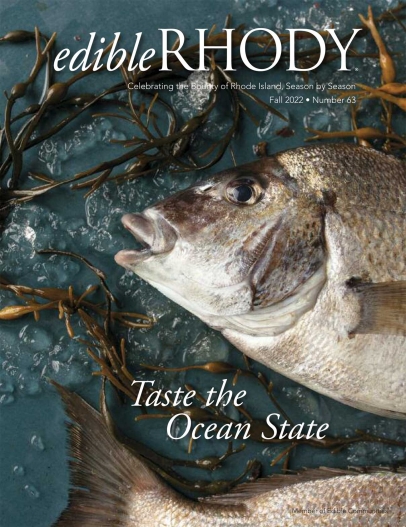
Dear Reader,
After a summer that left us feeling hot and bothered, quite literally, I’m hoping that the fall will offer some respite and revival. I’m normally a bit wistful as summer passes into the rearview mirror but after such a sweltering and extremely dry season, I’m ready to shift gears.
That proverbial shift can signal a great many things, and beyond seasons, I am also thinking about fish— specifically the locally landed fish on our fall cover. Even though we live in the Ocean State, you might be surprised to learn about the predominance of imported fish in the Rhode Island market. I hope our cover story inspires more Rhode Islanders to embrace locally landed species over fish imports. Less salmon, more scup! In this issue you’ll hear from local fishers, chefs and fishmongers who explain why choosing locally landed fish over imported fish makes so much sense for our local food community, our local economy and, more broadly, our planet.
We all know that change can be hard, but after a summer of extreme drought and high heat here and around the globe, I’m confident that we are all wondering what more we can do to mitigate climate change by altering our behavior. One change would be reducing the use of plastics, which play such a large role in our daily diet when it comes to food and food packaging. In the Edible Communities Signature Section, you’ll learn more of the challenges and the solutions to reduce our use of plastic packaging and about exciting innovations from companies in the food industry to tackle this problem.
Meanwhile, if you’re seeking serenity (and aren’t we all these days?), I urge you to make a beeline for Ceremony in Providence, where I guarantee you’ll depart a more relaxed individual. Whether you’re stopping in for a quick strawberry matcha or staying longer for a traditional tea ceremony or even a sake cocktail, owner Michelle Cheng will welcome you into the world of tea and tea culture in her peaceful oasis where you can sit, sip and revive your senses over thoughtfully sourced beverages.
Food and drink as nourishment and medicine are at the center of the Tomaquag Indigenous Gardens, where you’ll learn about Indigenous traditions, native flora, health and well-being. A demonstration garden plus the wild plants growing on the Tomaquag Museum property in Exeter illustrate the ways plants not only fed a culture but also provided materials for tools, medicines and more—a sharp contrast to the issues surrounding plastics, to be sure.
 As with all the content in this issue, I hope you find food for thought—and along with it some delicious recipes for cocktails, sweet treats and of course the savory recipes, many featuring locally landed fish for your fall table.
As with all the content in this issue, I hope you find food for thought—and along with it some delicious recipes for cocktails, sweet treats and of course the savory recipes, many featuring locally landed fish for your fall table.


